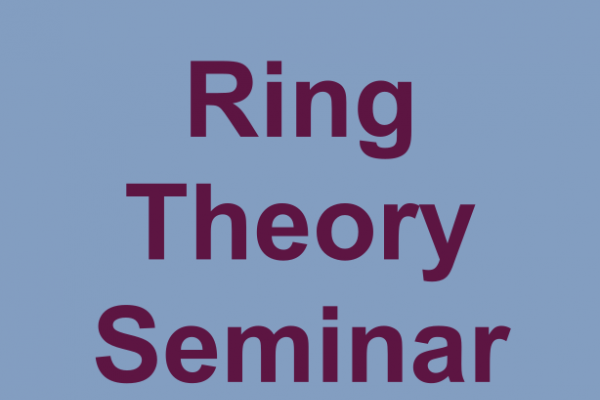
Fri, February 21, 2020
4:45 pm - 5:45 pm
Cockins Hall 240
Title: Amenable and Simple bases for the Algebra of Entangled Polynomials
Speaker: Ashley Pallone - Ohio University, Athens
Abstract: Using a standard embedding of $K[x]$, the algebra of polynomials with coefficients in a field $K$, into the ring of row-column-finite matrices over $K$, non-trivial factorizations of some irreducible polynomials in $K[x]$ are possible in the larger context. The row-column-finite matrices involved in those factorizations resemble polynomials in several ways. We call these matrices {\it entangled polynomials} as each one of them is induced by a finite number of polynomials. For every fixed $m \ge 1$, entangled polynomials induced by $m$ polynomials (the so-called $m$-nomials) form a ring $K^{(m)}[x]$. The ring of $1$-nomials is precisely $K[x]$. When $m$ divides $n$, $K^{(m)}[x]$ is a subring of $K^{(n)}[x]$. In particular, all rings of $m$-nomials include the polynomials.
Given an algebra $A$ over a field $K$, a basis $B$ for $A$ is said to be amenable if one can naturally extend the $A$-module structure on the $K$-vector space $K^{(B)}$ to the vector space $F^B$.
A basis $B$ is congenial to another one $C$ if infinite linear combinations of elements of $B$ translate in a natural way to infinite linear combinations of elements of $C$. While congeniality is not symmetric in general, when two bases $B$ and $C$ are mutually congenial then $B$ is amenable if and only if $C$ is amenable and, in that case, the module structures obtained on $K^B$ and $K^C$ are isomorphic. An interesting feature of congeniality is that (not necessarily mutual) congeniality between amenable bases yields an epimorphism of the modules they induce. An amenable basis $B$ is simple if it is not properly congenial to any other amenable basis.
We will present amenable bases and simple bases in the ring of all $2$-nomials as well as some results about congeniality in that setting.
This is a report on ongoing work by the speaker and Sergio R. López-Permouth.
